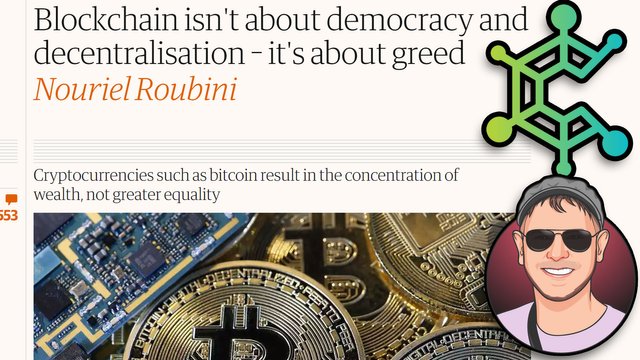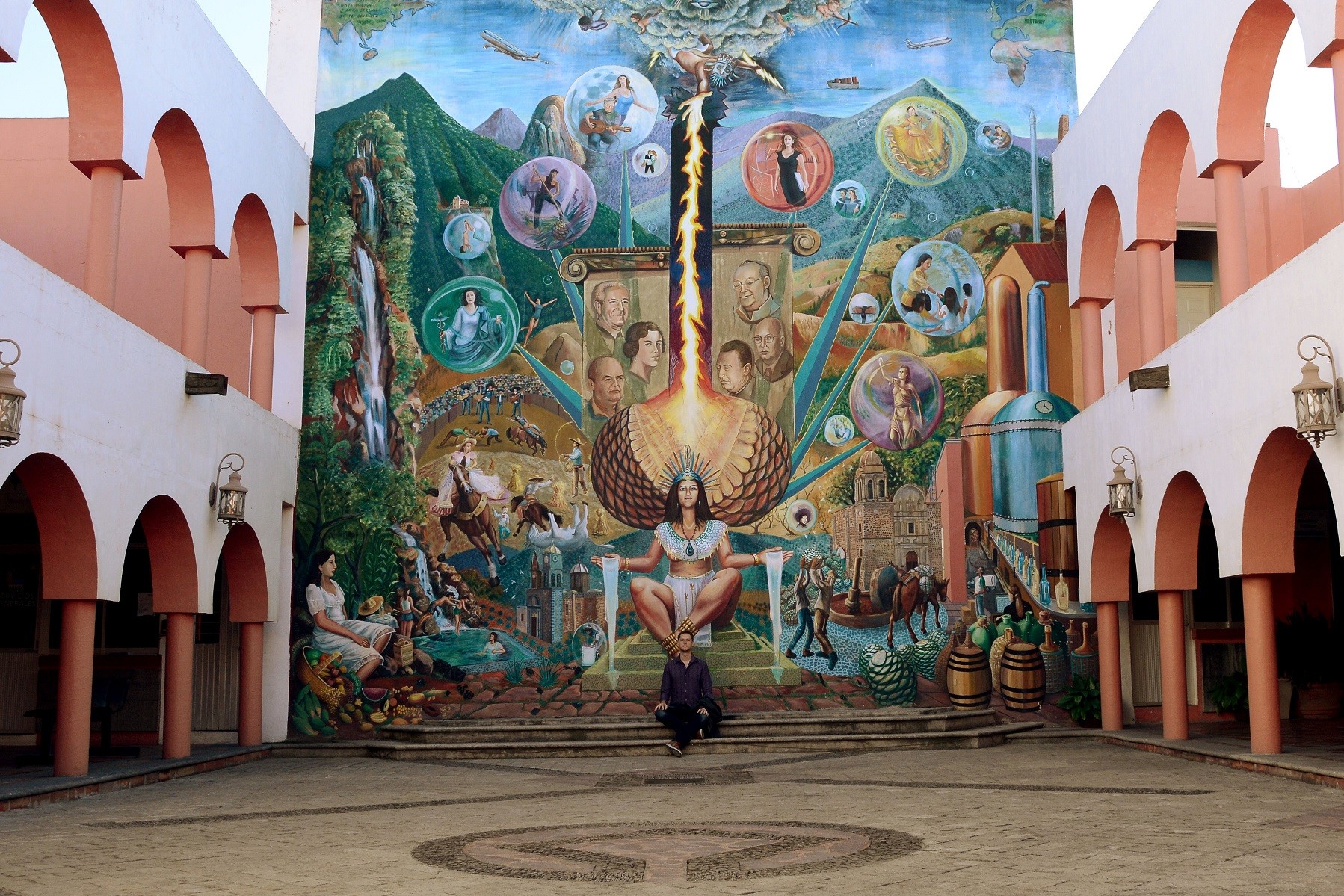
Last week, Nouriel Roubini, professor of economics at NYU’s Stern School of Business wrote an article about cryptocurrency, explaining how it’s all about greed. It’s true, crypto is about greed, but that’s not all it’s about. Cryptocurrency is a movement and technology with many people involved, some with idealistic motives, and some more nefarious. Roubini’s piece is littered with truths, half-truths and mis-truths, as I break down in this episode of Cryptonomics.
Here are a few key quotes from the article with my responses:
Scroll down to watch and listen to the episode.
The libertarian ideology
“But it has also become the byword for a libertarian ideology that treats all governments, central banks, traditional financial institutions, and real-world currencies as evil concentrations of power that must be destroyed.”
I’m not sure if Roubini was trying to portray blockchain enthusiasts as a bunch of radical anarchists. The sentence does lack nuance… but other than that, yes please, destroy central banks, governments and fiat currencies.
Everyone on the blockchain
“They would like the entirety of social and political life to end up on public ledgers that are supposedly ‘permissionless’ (accessible to everyone) and ‘trustless’ (not reliant on a credible intermediary such as a bank).”
This is kind of right, but not exactly. For many libertarians, the idea that their entire life would be on a blockchain is horrifying, but having the facility to put things on a blockchain, where they’re very difficult to remove or censor, is a great tool for liberty.

A few white men
“A few self-serving white men (there are hardly any women or minorities in the blockchain universe) pretending to be messiahs for the world’s impoverished, marginalised and unbanked masses claim to have created billions of dollars of wealth out of nothing.”
Whether a technology is built by white men, Zimbabwean tribe children or grey Tibetan apes, can’t tell us its utility or validity. In the following paragraph, Roubini contradicts himself by writing:
“a small group of companies – mostly located in such bastions of democracy as Russia, Georgia and China – control between two-thirds and three-quarters of all crypto-mining activity and all routinely jack up transaction costs to increase their fat profit margins.”
At once blockchains are scary because it involves white men, and because it involves people who might not be white men. Well, I’m not scared.
It’s not just about greed
“But one need only consider the massive centralisation of power among cryptocurrency ‘miners,’ exchanges, developers and wealth holders to see that blockchain is not about decentralisation and democracy; it is about greed.”
Miners might have a lot of power when it comes to processing the transactions of a network, but they can’t just invent new monetary policy as a central bank can do. Developers can change the code, but they can’t guarantee that anybody will continue to use their currency. It’s true that these systems are centralised in many ways, but they are still less centralised than central or commercial banks, and still more democratic than any government.
It’s really easy to see people making money, point the finger and say “they are greedy”, reducing the motivations of strangers to a single word. It takes imagination and empathy to wonder about their idealism, their purest intentions.

Blockchains are not for traditional companies
“So it is no surprise that whenever ‘blockchain’ has been piloted in a traditional setting, it has either been thrown in the trash bin or turned into a private permissioned database that is nothing more than an Excel spreadsheet or a database with a misleading name.”
Enterprising individuals are building new kinds of organisations and communities, like Dash’s decentralised autonomous organisations. These organisations are less hierarchical – they don’t even necessarily require CEOs. When an old-fashioned hierarchical company takes a blockchain structure and tries to implement it, we shouldn’t be surprised that they have no use for it, just as we wouldn’t be surprised that a horsebreeder would find no use for a motorcar.
Conclusion – Look for value first
A lot of intelligent people are also very critical people, and that means when they hear a new idea, they start picking it apart before they even get the full picture. That’s a useful skill to have as an engineer, statistician or economist, but it must be set aside when one wishes to put on the hat of futurist, visionary, or friend. The future, like visions and friendships, are things created, and so we must be creative to glimpse their potential.
As I said in my commentary for this clip with Kosh Eek, it’s easy to think that those who bought bitcoins years ago were just lucky, but the reality is subtler. They were curious enough to listen to information from unusual sources, about the problems of central banks and fiat currency, and to imagine how things were related. To those few, Bitcoin was like the “Rose That Grew From The Concrete”, a beauty, albeit bruised and misshapen, inspiring wonder about how it came to exist. They didn’t look for the flaws first and run away, but instead looked for value and then put the flaws in their proper context.
In these changing times, analysis without curiosity might leave one suddenly waking up in an unfamiliar world, desperate and afraid. A calm and open mind is receptive to new information, to changes, the dance of life and play of consciousness. Have the courage and quietness to see the future; reveal the path of opportunity; look for value.
You can listen and subscribe on Anchor and other podcasting services here:
Cryptonomics – Bitcoin is GREED – Economist Nouriel Roubini
